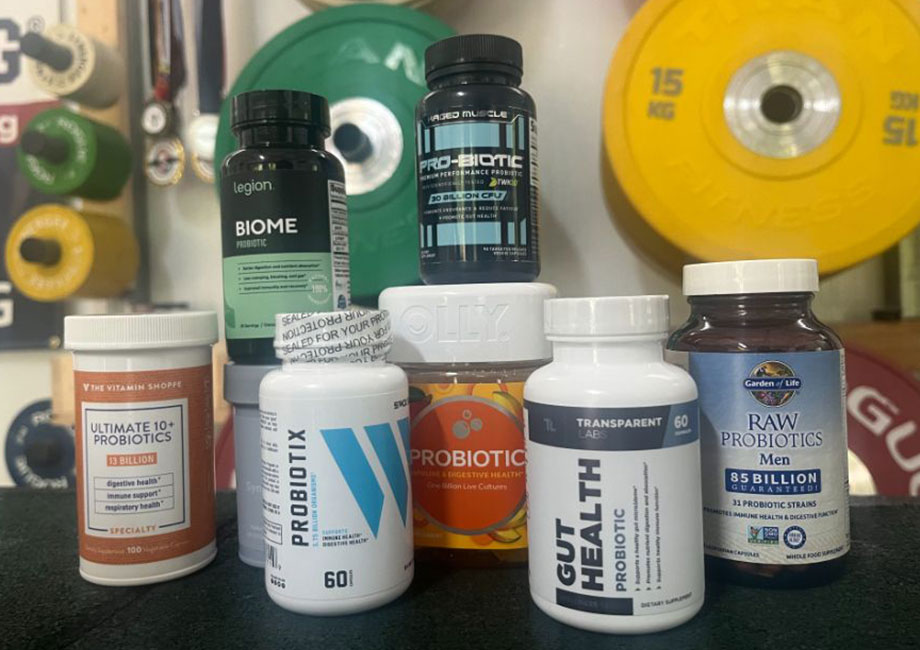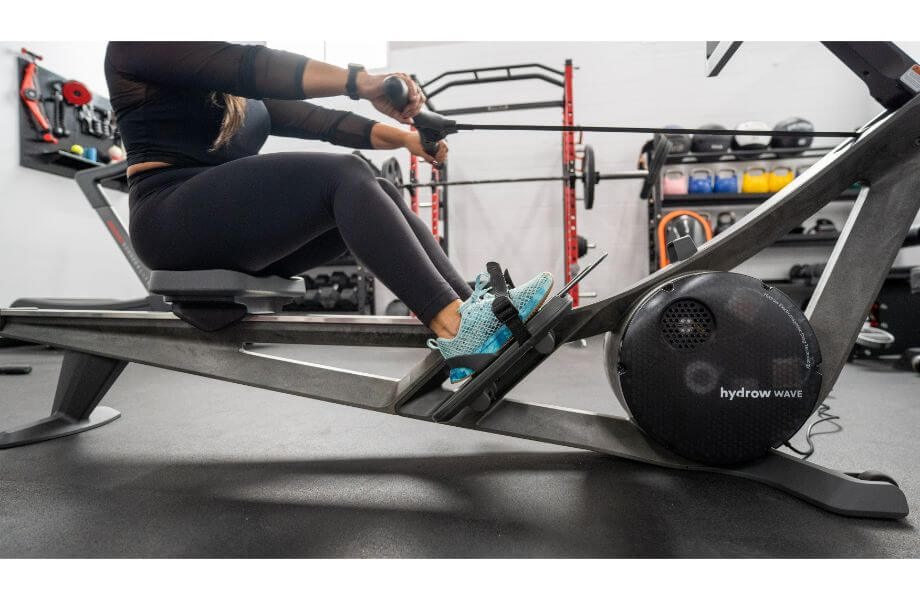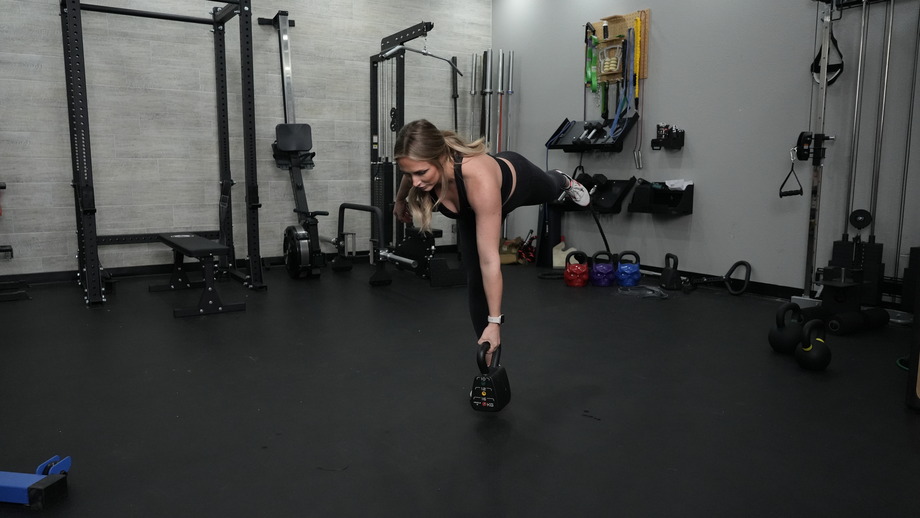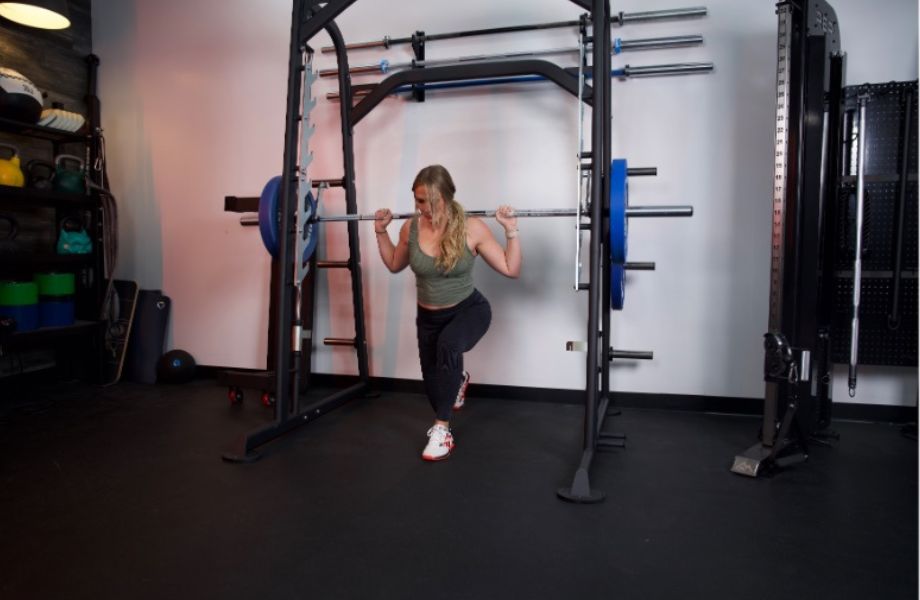Probiotics have been purported to help improve everything from IBS to even preventing cancer, but what are probiotics exactly? And why do they seem to be in so many foods nowadays? Probiotics are live microorganisms which could include yeasts or bacteria, that live inside our bodies and on the surface of our skin, an ecosystem called “the skin microbiome”.
RELATED: The Best Probiotic for Men
A microbiome is the term given for the colony of bacteria inhabiting our bodies. If it sounds scary or even counterintuitive to have bacteria in your body, you should know that probiotics are not the same as disease-causing (pathogenic) bacteria.
On the contrary, these beneficial microbes do not make you ill. Instead, they survive the transit from your mouth to your gut, and provide a set of health benefits. Namely, the health benefits that are mainly referenced in the context of probiotics is gut health. However, new research has begun to suggest that this “good bacteria” can do a lot for our bodies.
Key Takeaways
- The benefits of probiotics are often overstated and under researched, but there is solid evidence that it can help alleviate symptoms of some conditions.
- Most evidence of probiotic effectiveness has to do with assisting with the side effects of antibiotic-associated diarrhea with some promise of helping with IBS symptoms
- A higher CFU count does not always mean a superior probiotic product and know what genus and strain will help improve the condition you are looking to improve before buying probiotic products
- Healthy individuals who eat a balanced diet, especially one rich with fiber, likely do not need probiotic supplements
What Do Probiotics Do?
The good bacteria known as probiotics live mainly in our intestine and may also be referred to as “gut microbiota.” They work with the digestive system to break down food and more optimally absorb nutrients. Some types of probiotic strains even produce some vitamins in your gut, like Vitamin B121, along with short-chain fatty acids such as acetate, propionate, and butyrate.
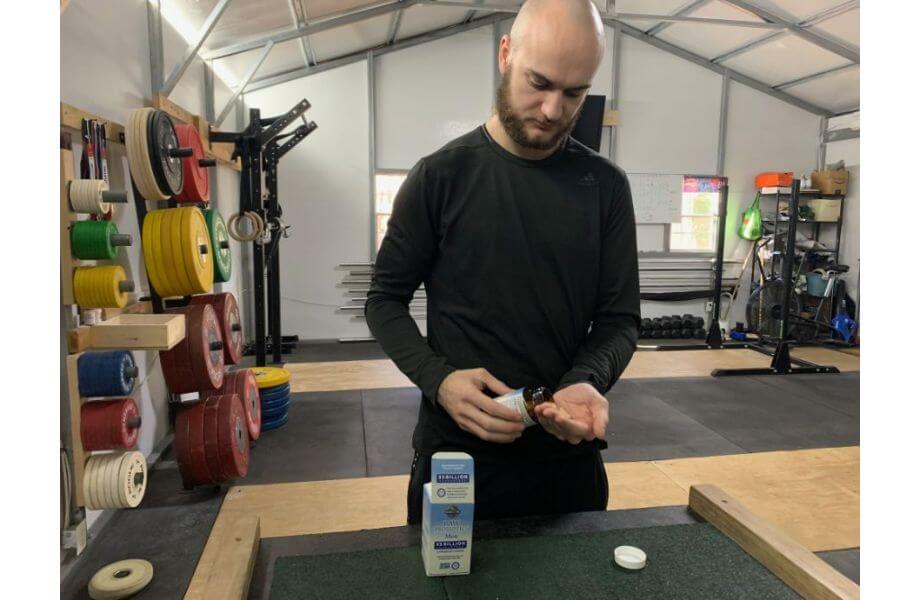
Because bad, pathogenic bacteria are still present in some amounts in our gut microbiome, the presence of beneficial microbes is vital to maintain something called eubiosis. Eubiosis is when the probiotic bacteria in your microbiome outnumbers the pathogenic bacteria, creating an ideal balance. When your microbiome is balanced, good bacteria can exert their beneficial effects on your body.
RELATED: Best Probiotic for Women
Probiotics can be used in a more targeted effort to help improve your gut health after taking antibiotics.Though antibiotics are very effective at fighting the pathogenic bacteria that causes some health conditions, the drugs will wipe out all bacteria — both good and bad.
This is why most people experience nasty GI symptoms after a round of antibiotics. Probiotic supplements and foods can help restore this balance to get one feeling better sooner.
What Foods Are Probiotic Foods?
So, we all know that people taking probiotics as supplements is a thing, but what types of foods contain probiotics? We refer to probiotic foods as “fermented foods” because they gain their flavor and structure from the activity of beneficial microbes. These probiotic products include the following:
- Fermented dairy products like yogurt or kefir
- Kimchi
- Miso
- Sauerkraut
- Kombucha
The problem is these foods are not always super common, nor are they super popular, which is why many people choose to support their gut health with probiotic supplements.
When Should You Take Probiotics?
Although the health benefits of probiotics are praised far and wide, not everyone should be taking a probiotic. Contrary to what’s been said about the role of probiotics in helping with the balance of your gut microbiome, healthy people eating a balanced diet full of fruits, vegetables, and other key nutrients likely already have a healthy population of good bacteria in their digestive tract.
RELATED: Best Prebiotic Foods
Now that that’s established, you might want to consider taking a probiotic, or at least ask your health care provider about them, if you are experiencing any of the following:
- Antibiotic-associated diarrhea
- IBS or an inflammatory bowel disease like ulcerative colitis
- Those who frequently experience gas, bloating, constipation or other gastrointestinal symptoms
There may be other benefits to probiotics, which I discuss below, but research has been more consistently positive about probiotics for symptoms like those listed above – and even that science isn’t 100% solid.
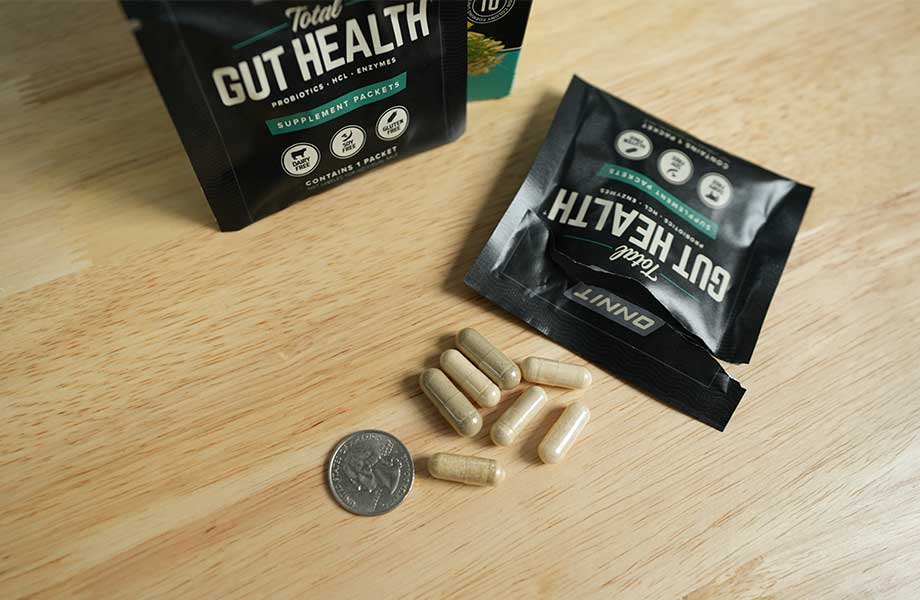
As far as when to take probiotics, there’s no specific time or day that’s more or less beneficial. However, it’s important to avoid taking them with acidic foods and beverages like coffee, juice, tomatoes or citrus fruits, as these can kill the microbes in the stomach before they’ve had a chance to reach the gut.
Which Probiotics Are The Best?
When selecting a probiotic, you want to find one that contains both active and live microorganisms. There is no evidence that refrigerated probiotics are superior to shelf stable varieties, but you should consider refrigerating your probiotics if you live in a warm climate.
You also want to take a look at the count of CFU (colony-forming units) which indicates how many probiotic bacteria are present. While it is recommended to have at least 1 billion CFU, remember that more is not necessarily better. This is especially true considering labeling regulations allow different probiotic brands to include the total weight of microbes2 in their probiotic products whether they are alive or dead.
RELATED: Best Prebiotic Soda
If you’re not just going for general gut health, you want to select probiotic products that contain the probiotic strains for specific health conditions you’re looking to acknowledge. We’ll cover some of those in the next section, but it’s always best to ask your healthcare provider for the most accurate recommendations.
Finally, probiotic products containing prebiotics may be more effective, since prebiotics act as food for the gut microbiota, which may keep them alive and multiplying longer than they would without prebiotics. However, these prebiotics may be easily obtained from your diet without supplementation.
Benefits of Probiotics
The hard truth is that even the most comprehensive clinical trials surrounding the health benefits of probiotics are iffy and it’s likely because every person has a unique population of gut microbiota – like a fingerprint. Thus, it’s incredibly difficult to predict how each person will react to the same probiotic supplements. Therefore, we’ll focus on the benefits that have been most widely accepted or that appear most promising at this time.
Can Ease Diarrhea Symptoms
As mentioned above, the most well-researched benefit of probiotic supplementation is the ability to ease post-antibiotic diarrhea. One review of dozens of clinical trials3 showed that not only do probiotics help reduce the duration of antibiotic-associated diarrhea, but that they are safe and effective to take in healthy people who are not immunocompromised.
So, if you experience nasty symptoms in your gastrointestinal tract while taking antibiotics, ask your doctor about probiotic supplements to support your digestive health. Saccharomyces boulardii and Lactobacillus rhamnosus are two different strains that have been most consistently shown as effective in the research and can be taken at the same time as the antibiotic, while other lactobacillus strains are better taken a few hours after.
Finally, recent studies have shown it can be advantageous to continue taking probiotics a minimum of two weeks4 after your antibiotic cycle has ended.
Helps Improve Symptoms of Inflammatory Bowel Disease
Though probiotics cannot and should not be used as a treatment for irritable bowel syndrome or inflammatory bowel disease, there has been mixed evidence that it can help manage the symptoms of these conditions.
RELATED: Best Fiber Supplements for Constipation
One recent review5 concluded that probiotics significantly helped alleviate abdominal pain, bloating, and constipation in those with irritable bowel syndrome.
There has also been recent research showing that some good bacteria, especially Bifidobacterium, can help with Crohn’s disease and ulcerative colitis specifically, with four out of 11 studies reviewed even showing remission6. However, we are far from establishing probiotics as a treatment for these chronic conditions.
May Assist in Improve Immune System Improvement
Did you know that around 80% of our immune cells7 are found in the intestine? It is hypothesized that the presence of good bacteria in the gastrointestinal tract can help make the immune system more efficient at identifying pathogens8 to eliminate them more quickly before disease can set in.

Probiotics have shown a lot of promise in helping to support the immunity of athletes in particular, especially endurance athletes9. Endurance athletes are at particular risk of illness when compared to other athletes due to a higher level of exercise induced stress on the body.
RELATED: Best Prebiotics (2025): Letting Probiotics and Your Gut Live Their Best Lives
Can Support Healthier Skin
Though we’ve spoken a lot about probiotics’ role in digestive health, we can’t forget that there’s a large population of beneficial microbes on our skin as well. Thus, it’s been suggested that dysbiosis on the skin can exacerbate conditions like eczema and psoriasis and that supplementing with probiotics can help manage the inflammation10 that these conditions stem from.
In spite of that, the research is very mixed at this time, but there have been no adverse side effects reported by those suffering from these skin conditions when trying probiotics.
Risks of Taking Probiotics
Probiotics have been safely taken by healthy people for many years and side effects are rarely seen11. When they are seen, they are typically mild gastrointestinal like bloating and gas that normally subside as your body adjusts to the microbes.
All of that considered, there are people who should avoid taking probiotics or consult with a medical professional first. These people include:
- Those who are immunocompromised or who have autoimmune disorders
- Those on certain medications
- Pregnant women and young children
RELATED: Probiotics Side Effects Explained By a Registered Dietitian
It should still be noted that, like other dietary supplements, probiotics are not regulated by the FDA, so they should still be vetted with care. If you have any concerns, always talk to your health care provider before starting a probiotic.
What Are Probiotics: Final Thoughts
The role that probiotics play in human health still has a long way to go in being fully understood, if it ever will be. Each and every person has a different population of bacteria in their microbiome, so not everyone will respond to probiotic supplementation or consumption in the same way. As a result, most of the benefits you see listed online are either anecdotal or wildly overhyped.
To be frank, if you are consuming a healthy and balanced diet, you likely don’t need to supplement with probiotics. However, there may be certain situations, such as after taking antibiotics, when supplementation may be necessary.
Note that although probiotics are generally recognized as very safe to take for health people, they are not appropriate for everyone. So, always consult with your primary care provider if you are thinking of starting a probiotic supplement.
What Are Probiotics: FAQs
What exactly does a probiotic do?
A probiotic can help maintain a healthy balance of good bacteria in the body which may help promote both gut health and general health.
What foods contain probiotics?
Fermented foods and dairy products like yogurt or kefir, kimchi, sauerkraut, and kombucha are some of the most commonly found probiotic foods.
What are the benefits of taking probiotics?
Though research is mostly mixed across the board, benefits of probiotics can include improved digestive health, immune health, and improved symptoms of eczema and IBS.
What is an example of a probiotic?
A probiotic could be present in a supplement or in fermented foods that contain live cultures that can survive in the gut.
References
- Ribeiro M, Maciel C, Cruz P, et al. Exploiting Potential Probiotic Lactic Acid Bacteria Isolated from Chlorella vulgaris Photobioreactors as Promising Vitamin B12 Producers. Foods. 2023;12(17):3277. Published 2023 Sep 1. doi:10.3390/foods12173277
- Nutrition C for FS and A. Draft Guidance for Industry: Policy Regarding Quantitative Labeling of Dietary Supplements Containing Live Microbials. U.S. Food and Drug Administration.
- Goldenberg JZ, Ma SS, Saxton JD, et al. Probiotics for the prevention of Clostridium difficile-associated diarrhea in adults and children. Cochrane Database Syst Rev. 2013;(5):CD006095. Published 2013 May 31. doi:10.1002/14651858.CD006095.pub3
- Suez J, Zmora N, Zilberman-Schapira G, et al. Post-Antibiotic Gut Mucosal Microbiome Reconstitution Is Impaired by Probiotics and Improved by Autologous FMT. Cell. 2018;174(6):1406-1423.e16. doi:10.1016/j.cell.2018.08.047
- Almabruk BA, Bajafar AA, Mohamed AN, et al. Efficacy of Probiotics in the Management of Irritable Bowel Syndrome: A Systematic Review and Meta-Analysis. Cureus. 2024;16(12):e75954. Published 2024 Dec 18. doi:10.7759/cureus.75954
- Vakadaris G, Stefanis C, Giorgi E, et al. The Role of Probiotics in Inducing and Maintaining Remission in Crohn’s Disease and Ulcerative Colitis: A Systematic Review of the Literature. Biomedicines. NIH. 2023;11(2):494. Published 2023 Feb 8. doi:10.3390/biomedicines11020494
- Wiertsema SP, van Bergenhenegouwen J, Garssen J, Knippels LMJ. The Interplay between the Gut Microbiome and the Immune System in the Context of Infectious Diseases throughout Life and the Role of Nutrition in Optimizing Treatment Strategies. Nutrients. 2021;13(3):886. Published 2021 Mar 9. doi:10.3390/nu13030886
- Mazziotta C, Tognon M, Martini F, Torreggiani E, Rotondo JC. Probiotics Mechanism of Action on Immune Cells and Beneficial Effects on Human Health. Cells. 2023;12(1):184. Published 2023 Jan 2. doi:10.3390/cells12010184
- Díaz-Jiménez J, Sánchez-Sánchez E, Ordoñez FJ, et al. Impact of Probiotics on the Performance of Endurance Athletes: A Systematic Review. Int J Environ Res Public Health. 2021;18(21):11576. Published 2021 Nov 4. NIH. doi:10.3390/ijerph182111576
- Umborowati MA, Damayanti D, Anggraeni S, et al. The role of probiotics in the treatment of adult atopic dermatitis: a meta-analysis of randomized controlled trials. J Health Popul Nutr. 2022;41(1):37. Published 2022 Aug 17. doi:10.1186/s41043-022-00318-6
- Roe AL, Boyte ME, Elkins CA, et al. Considerations for determining safety of probiotics: A USP perspective. Regul Toxicol Pharmacol. 2022;136:105266. doi:10.1016/j.yrtph.2022.105266



